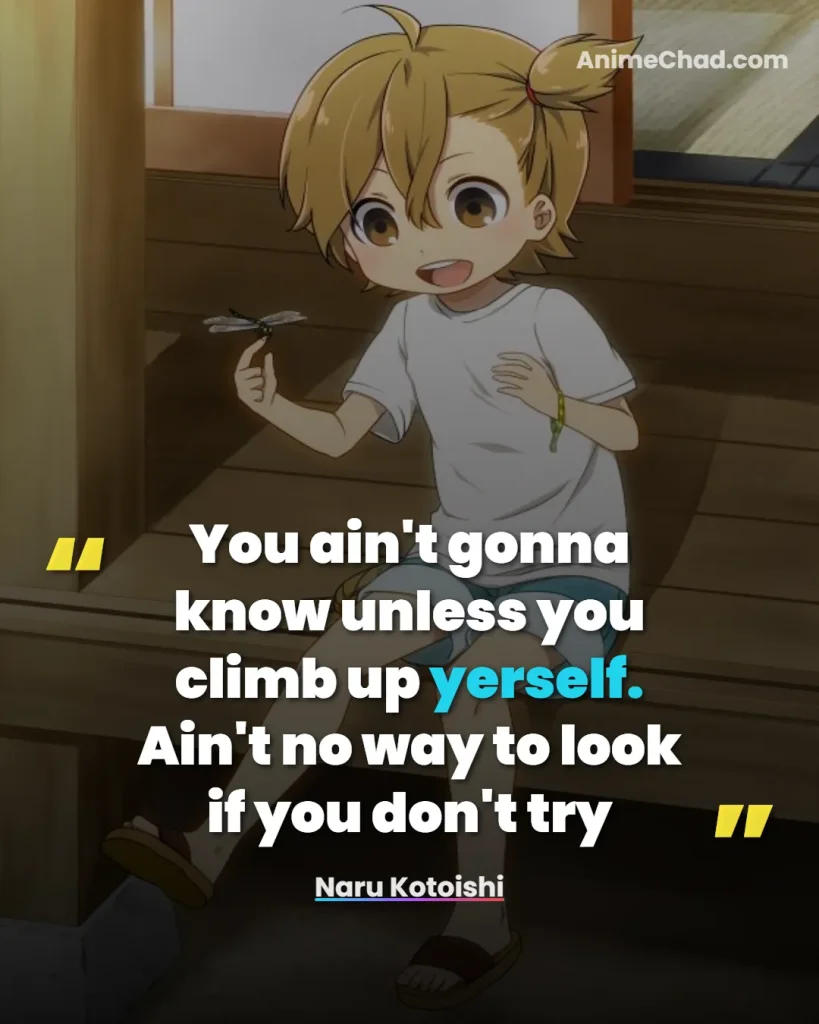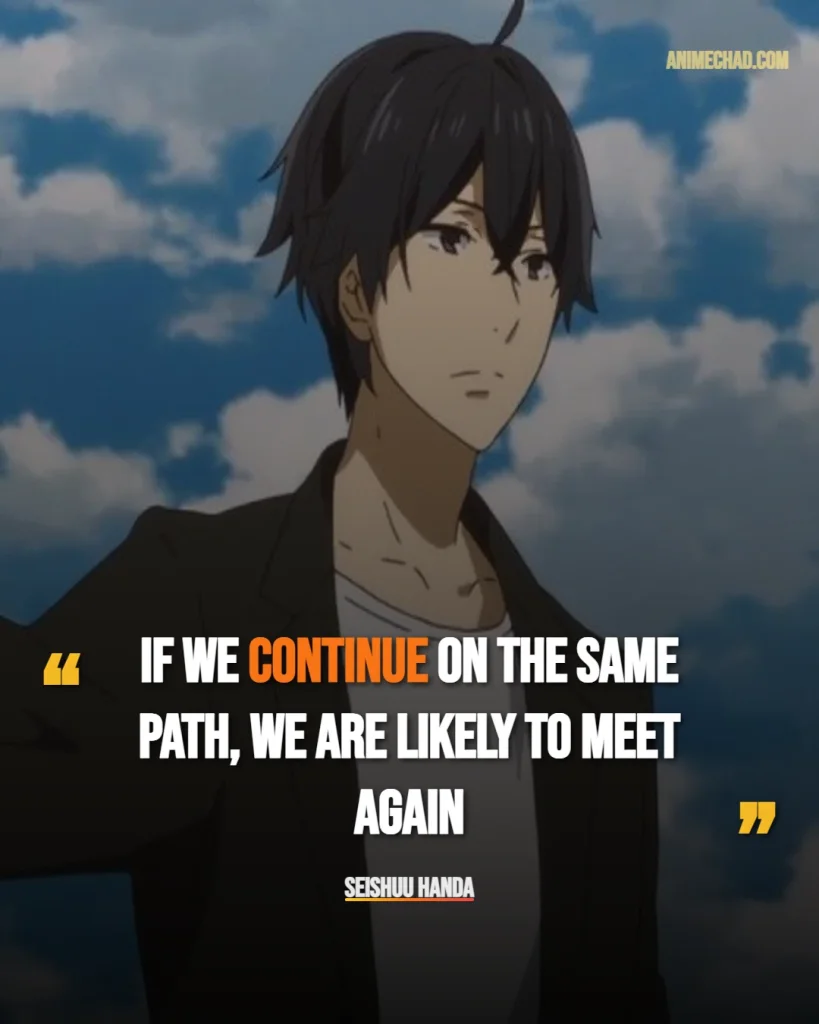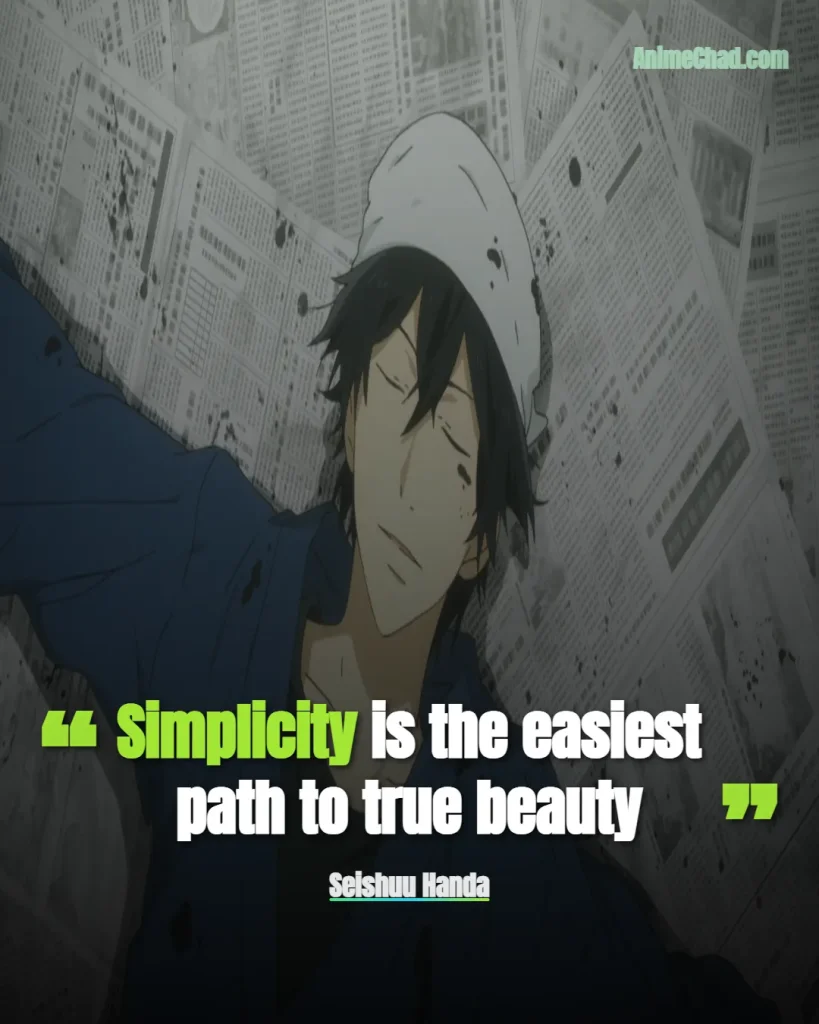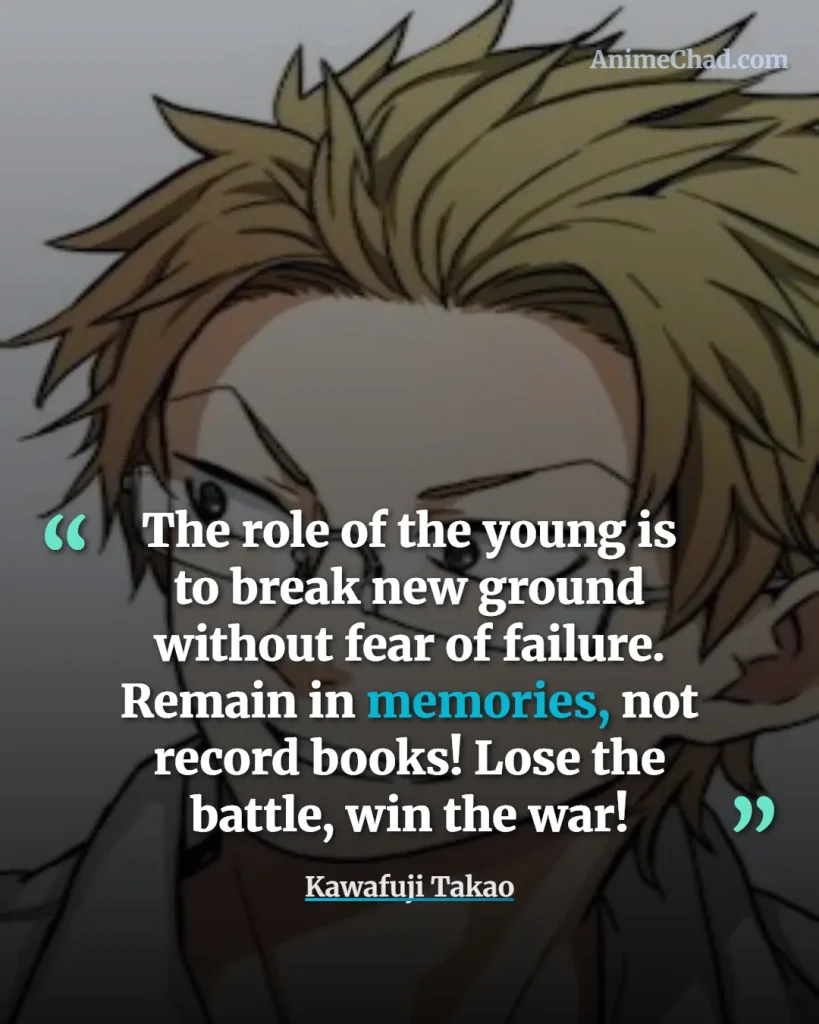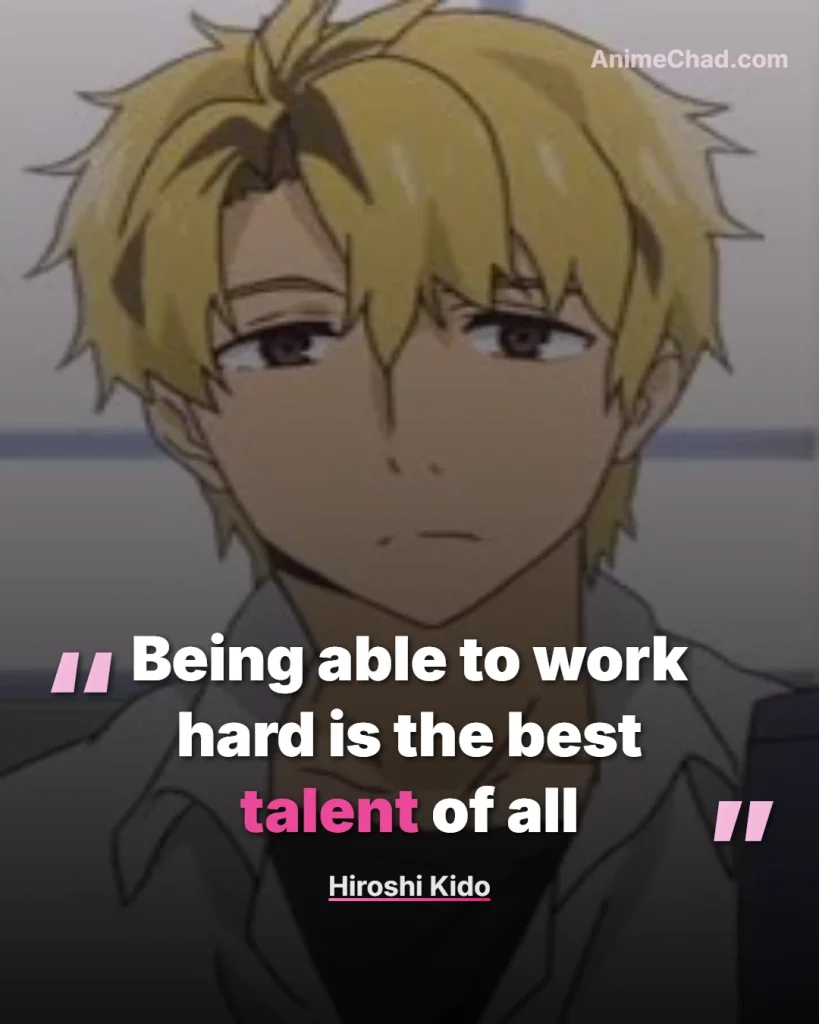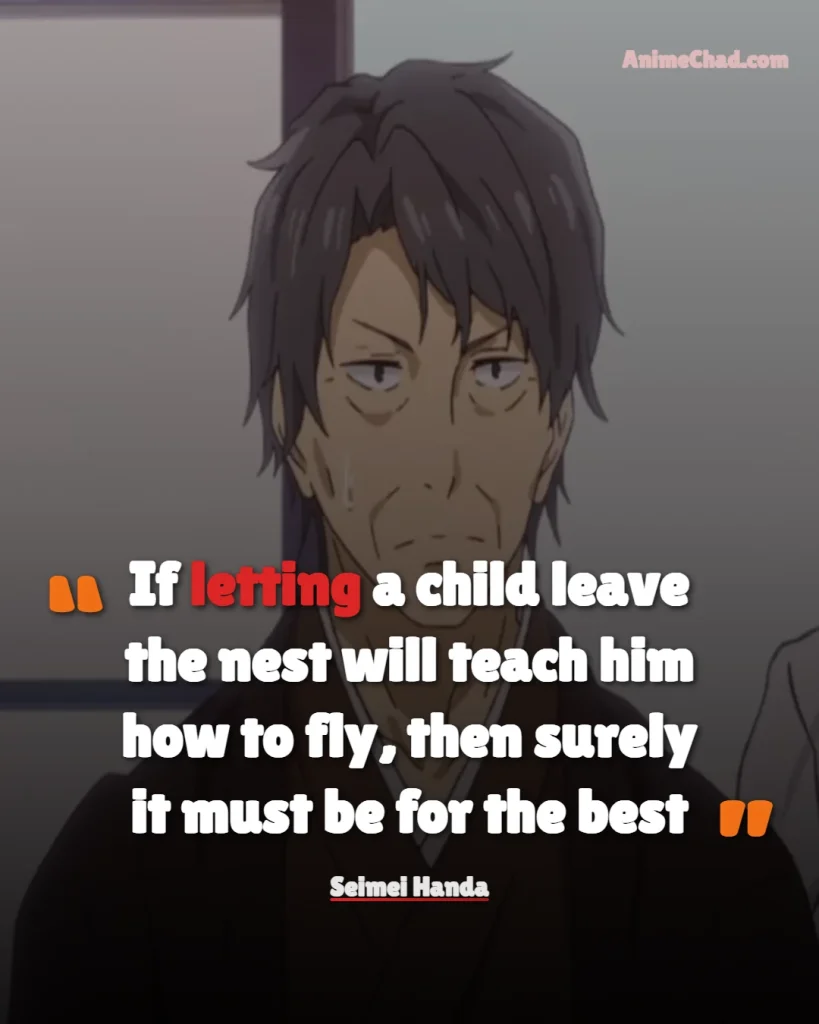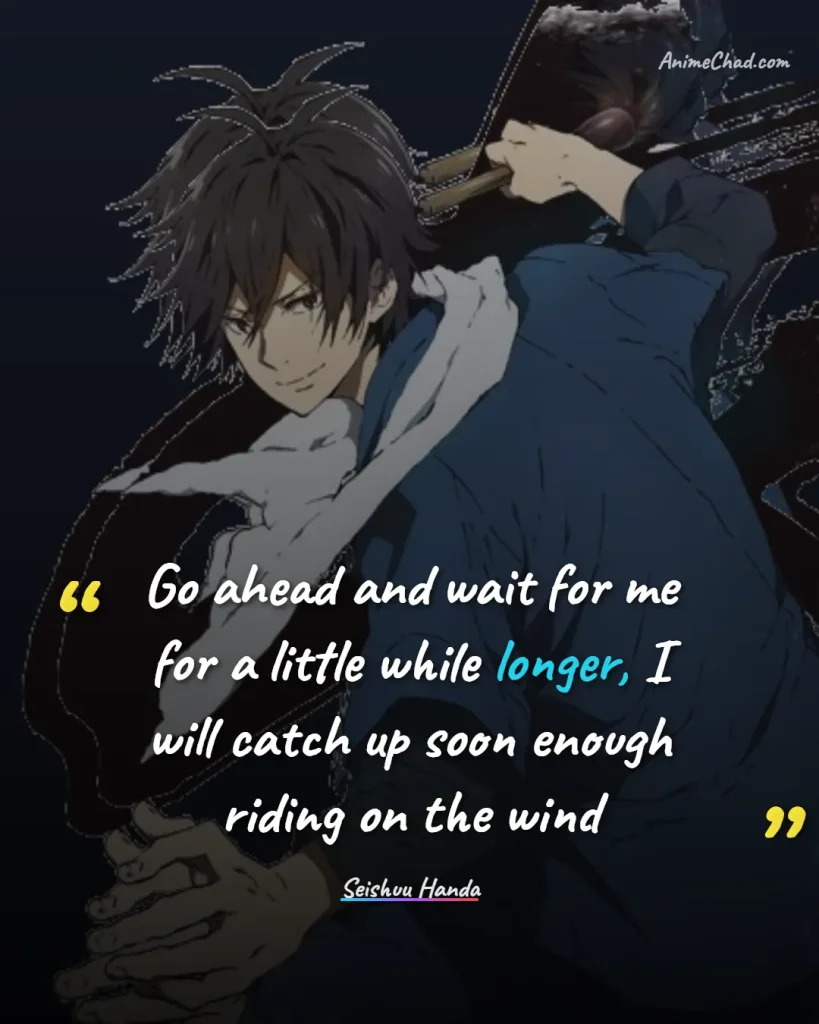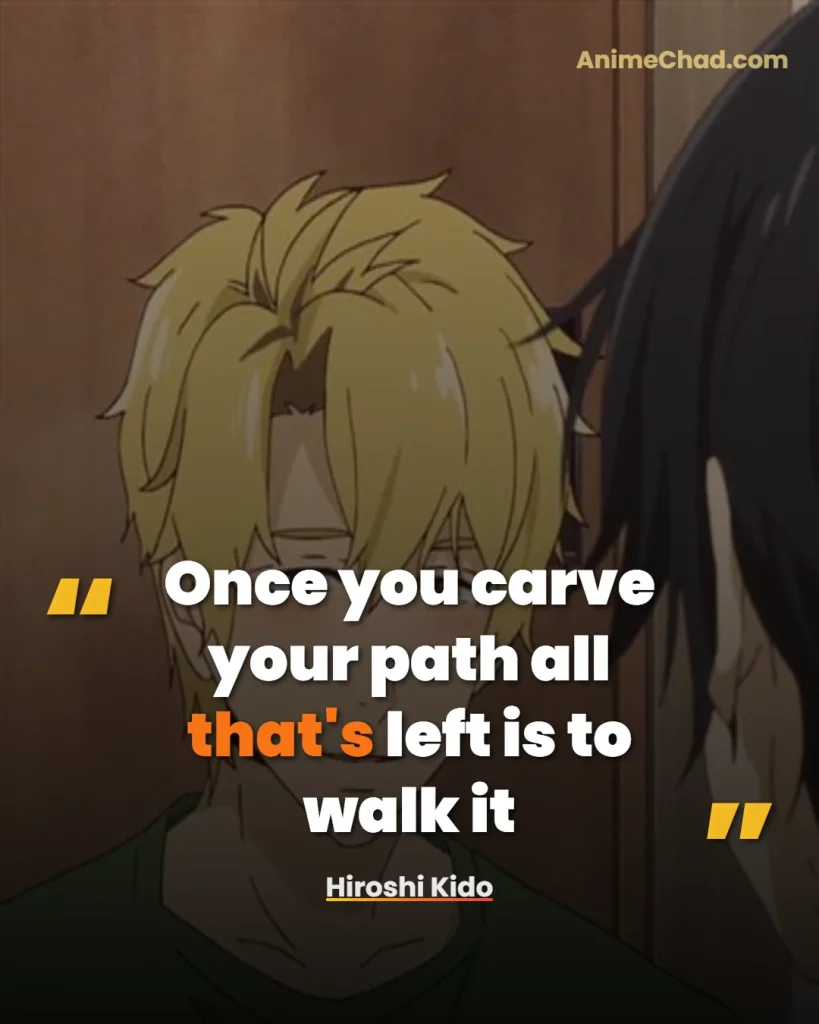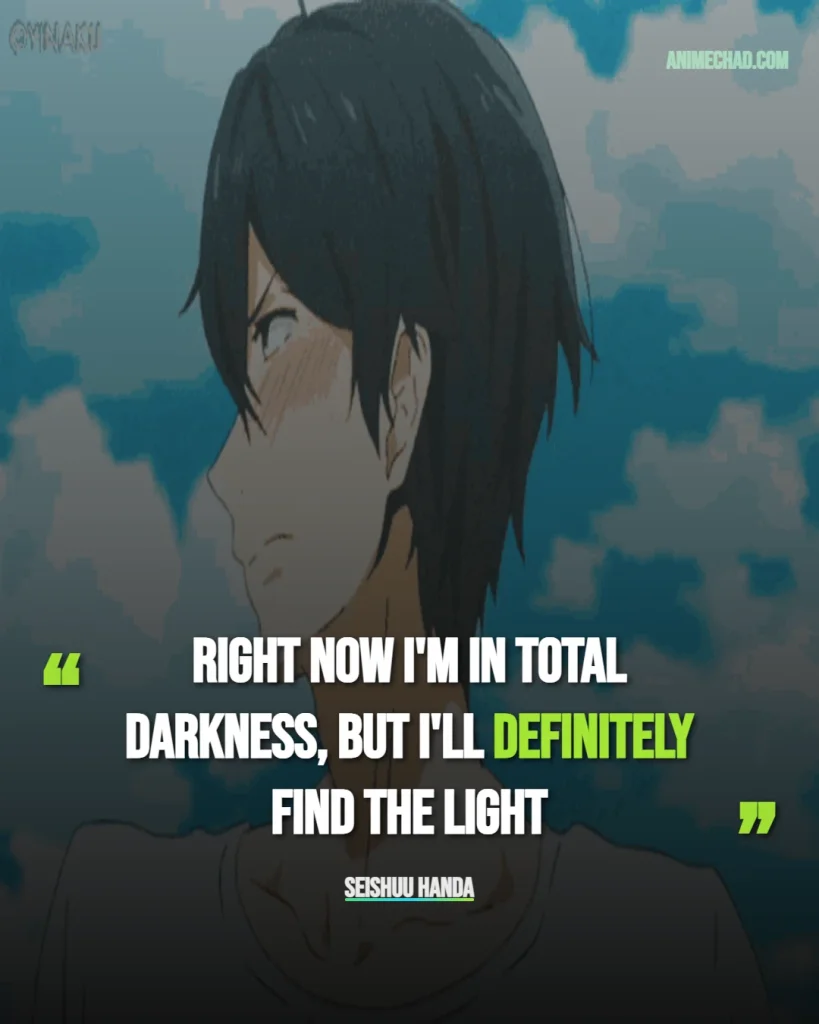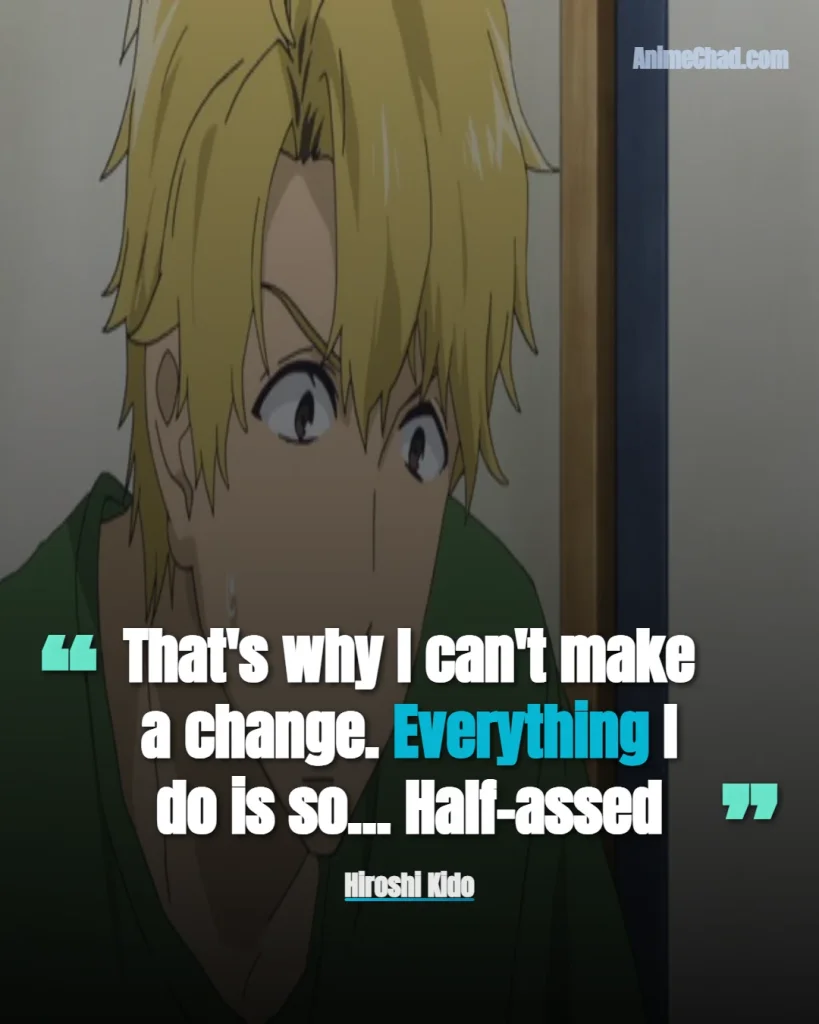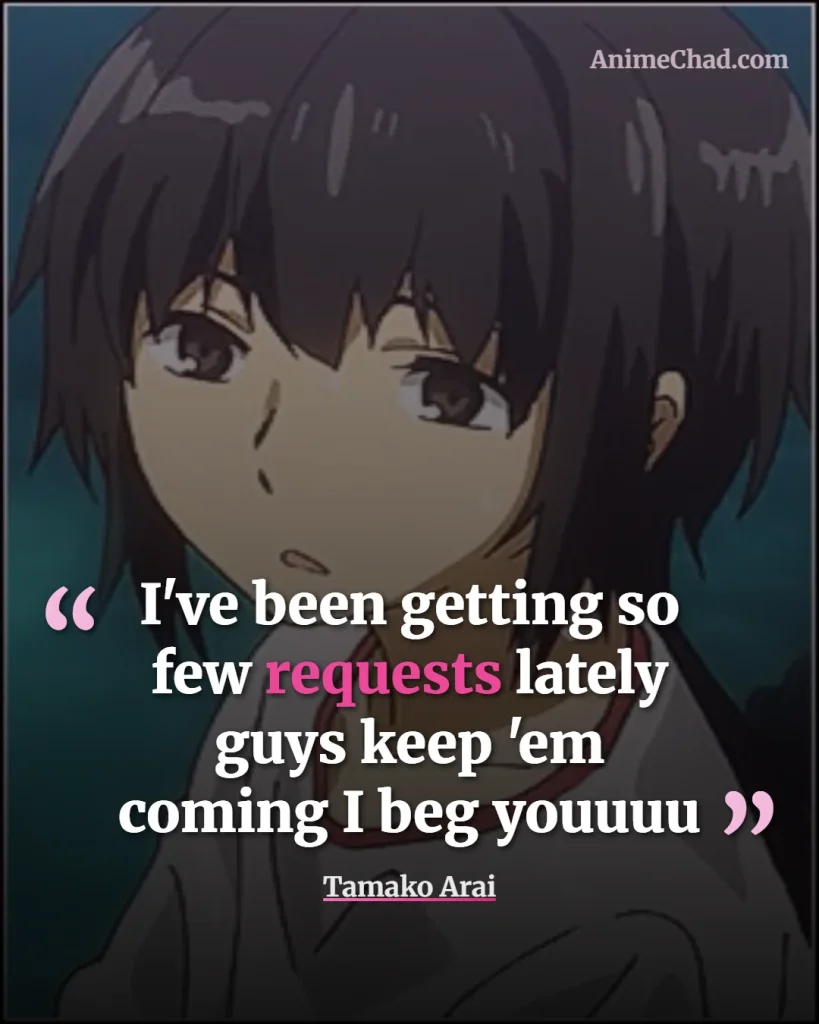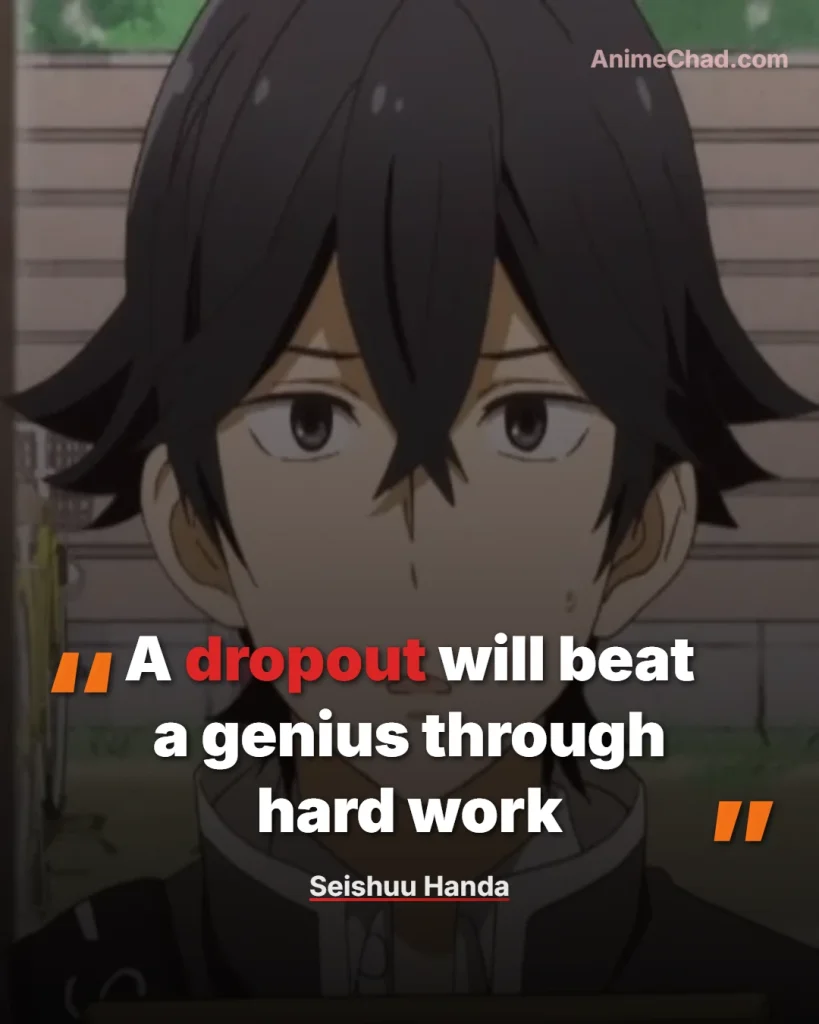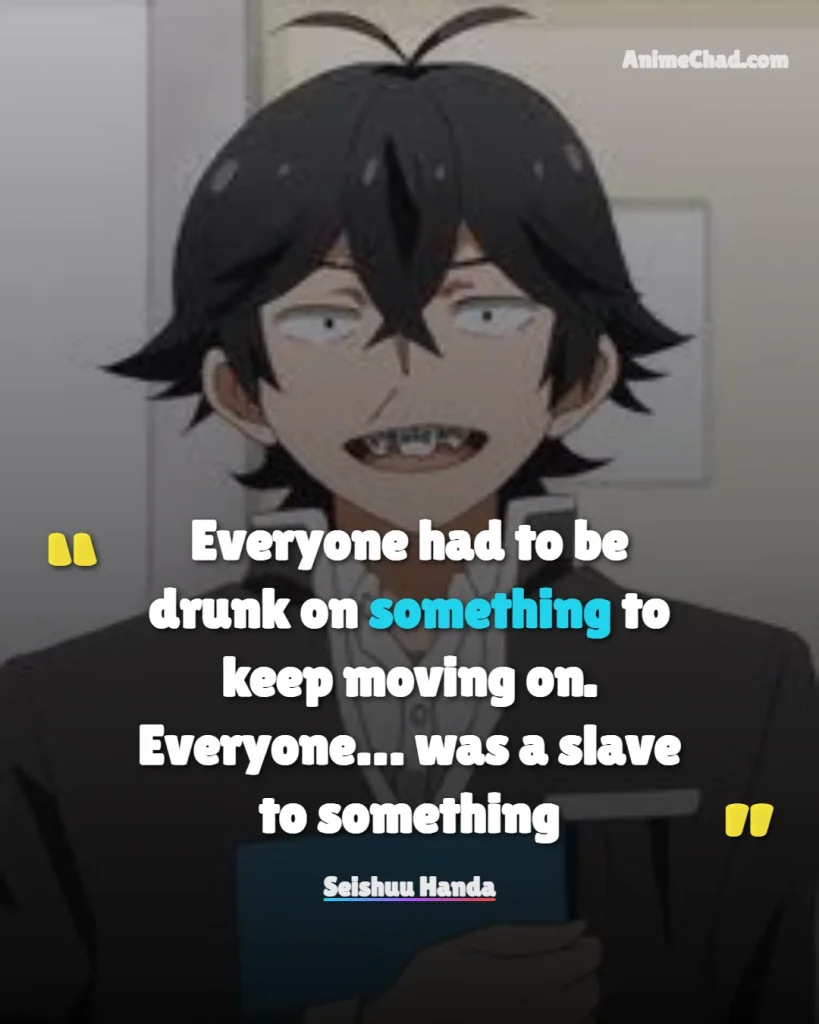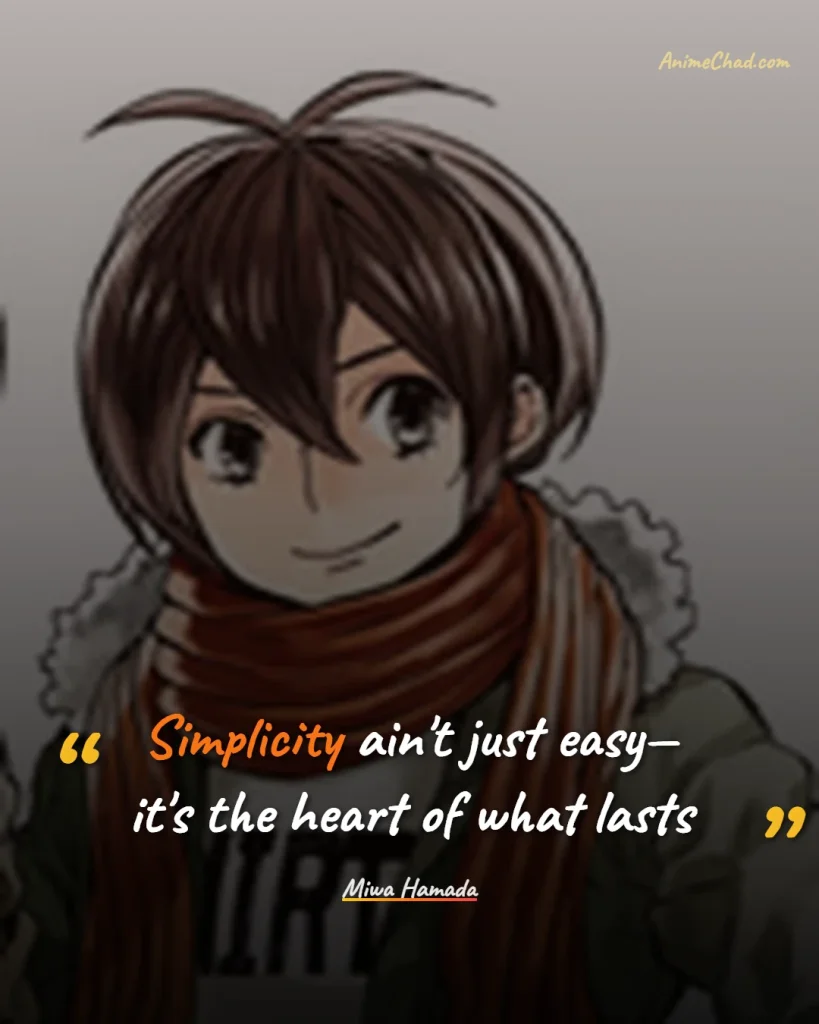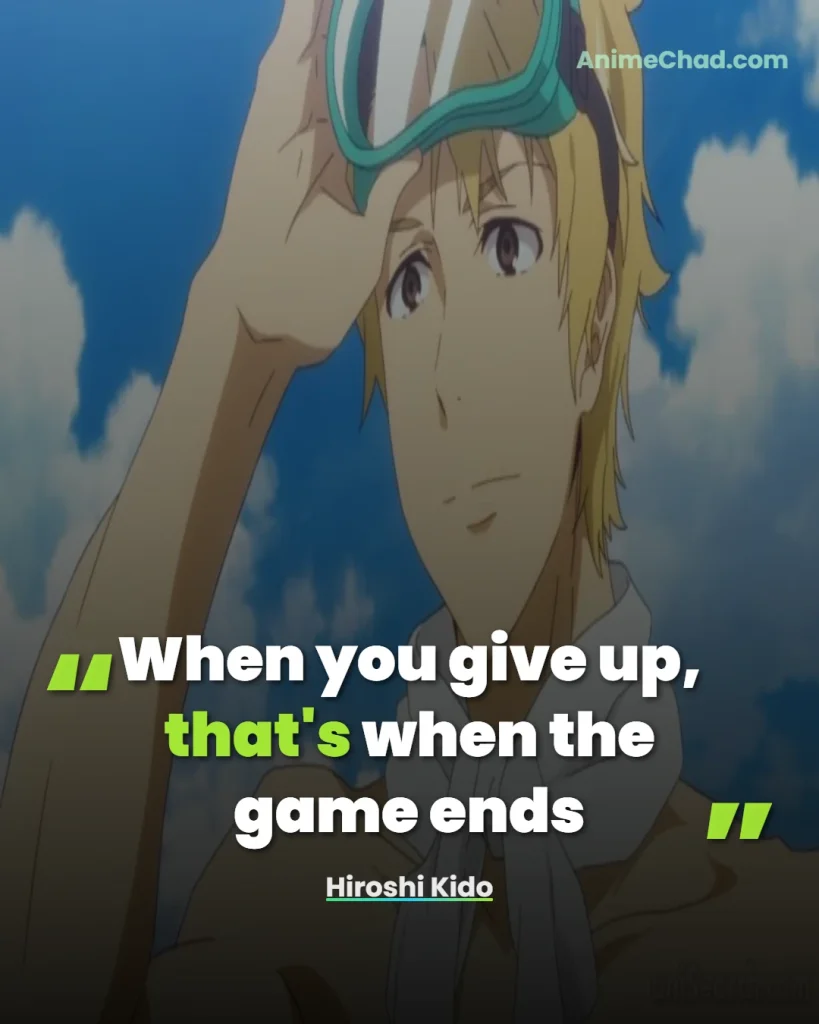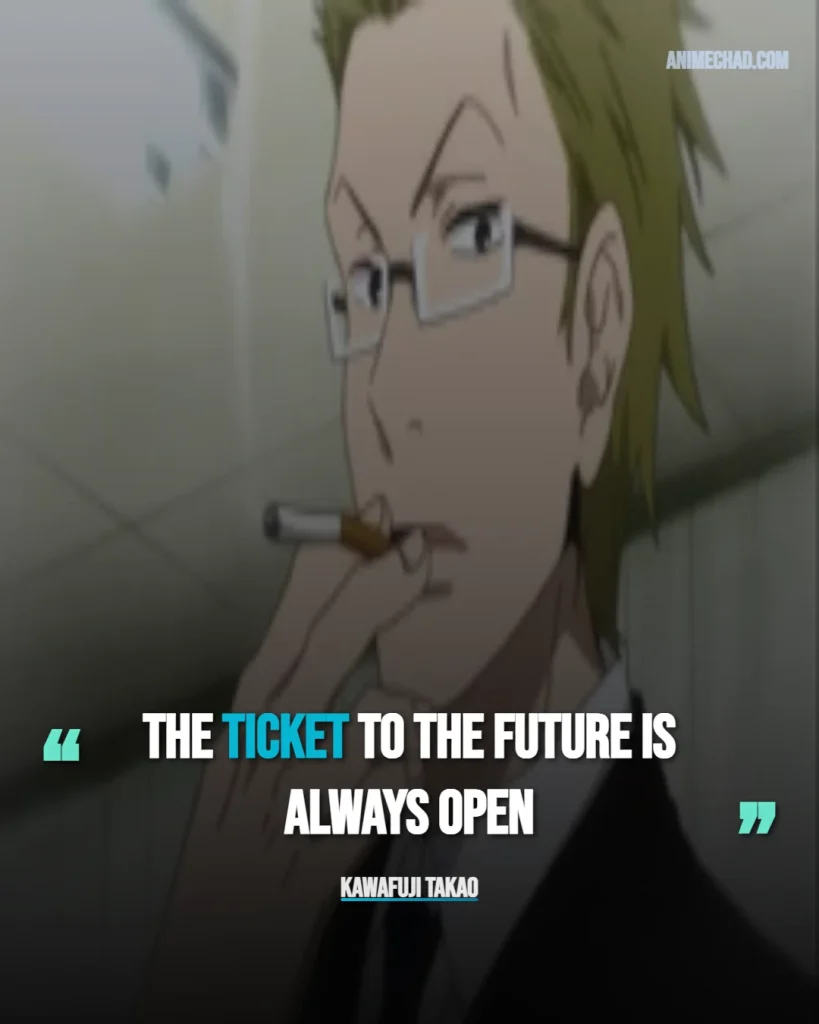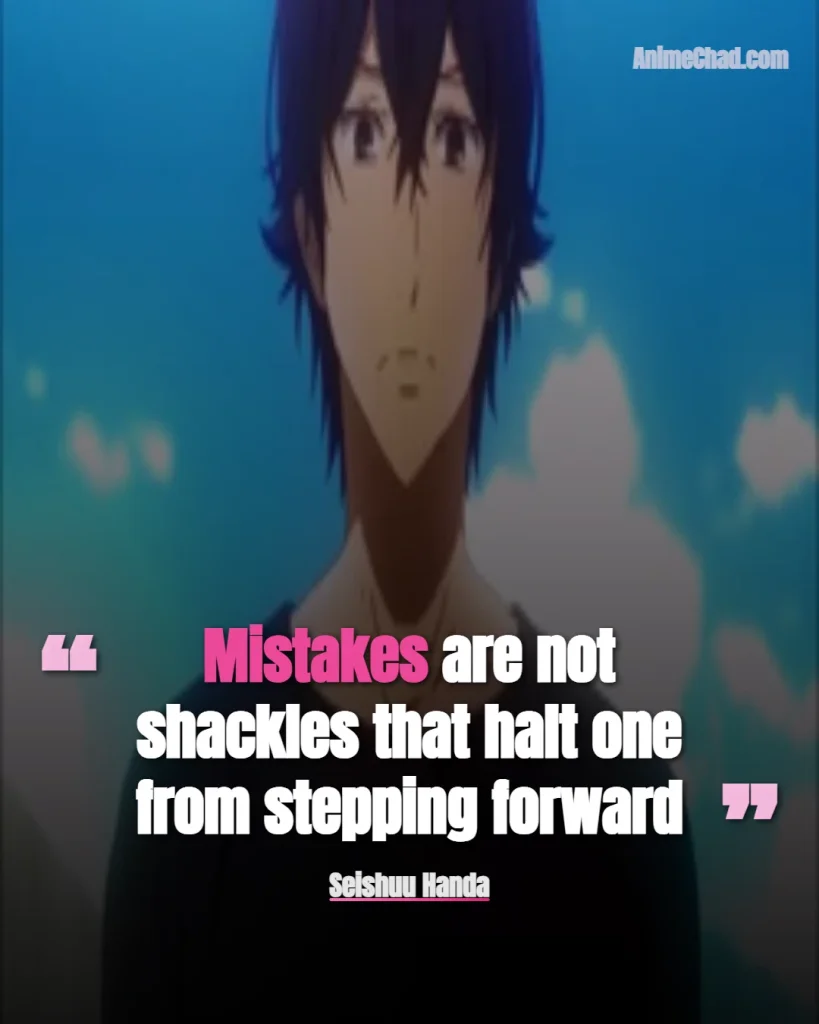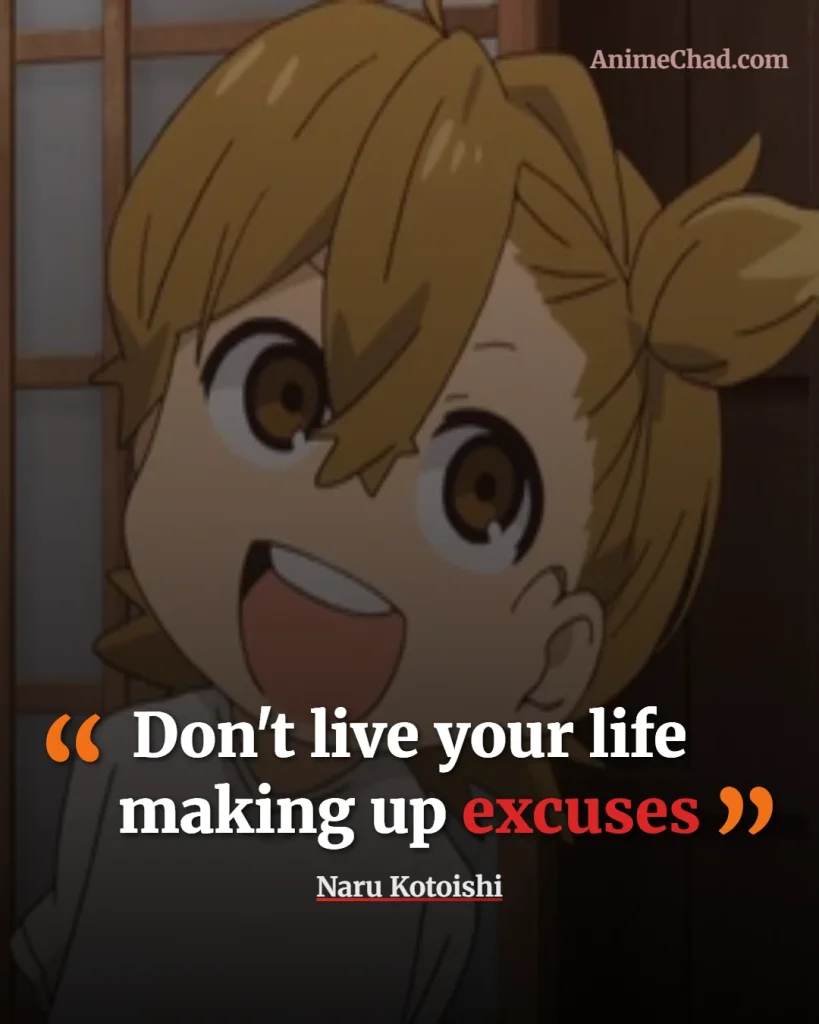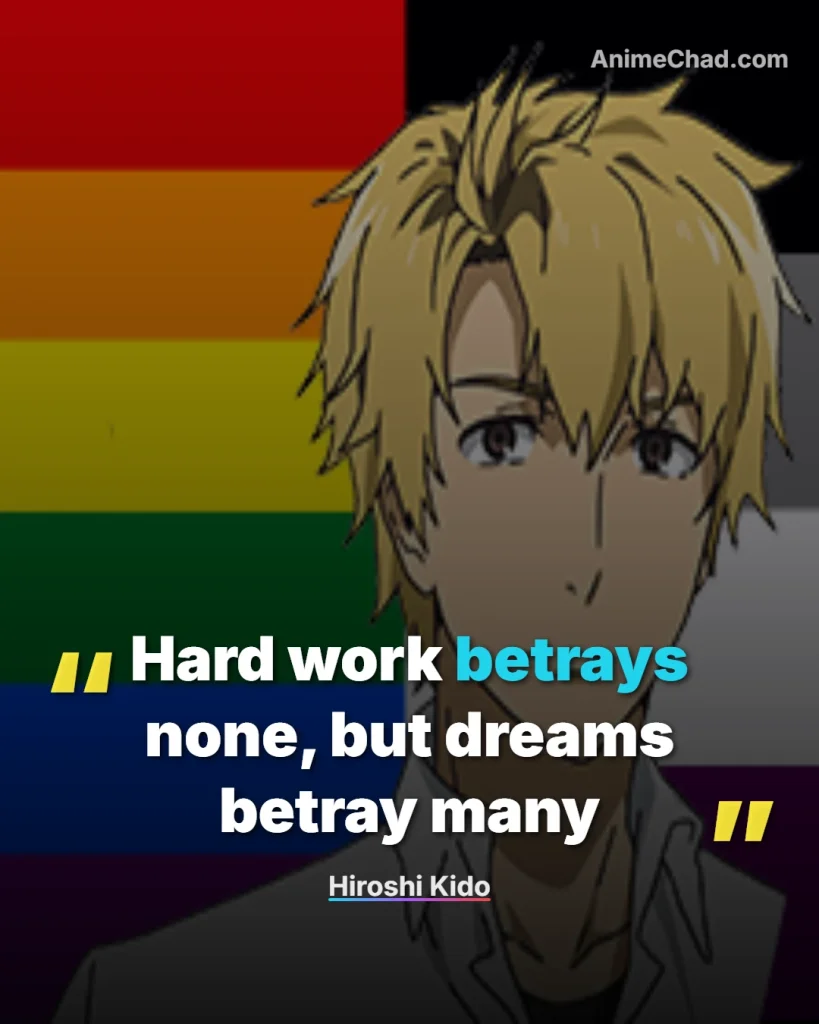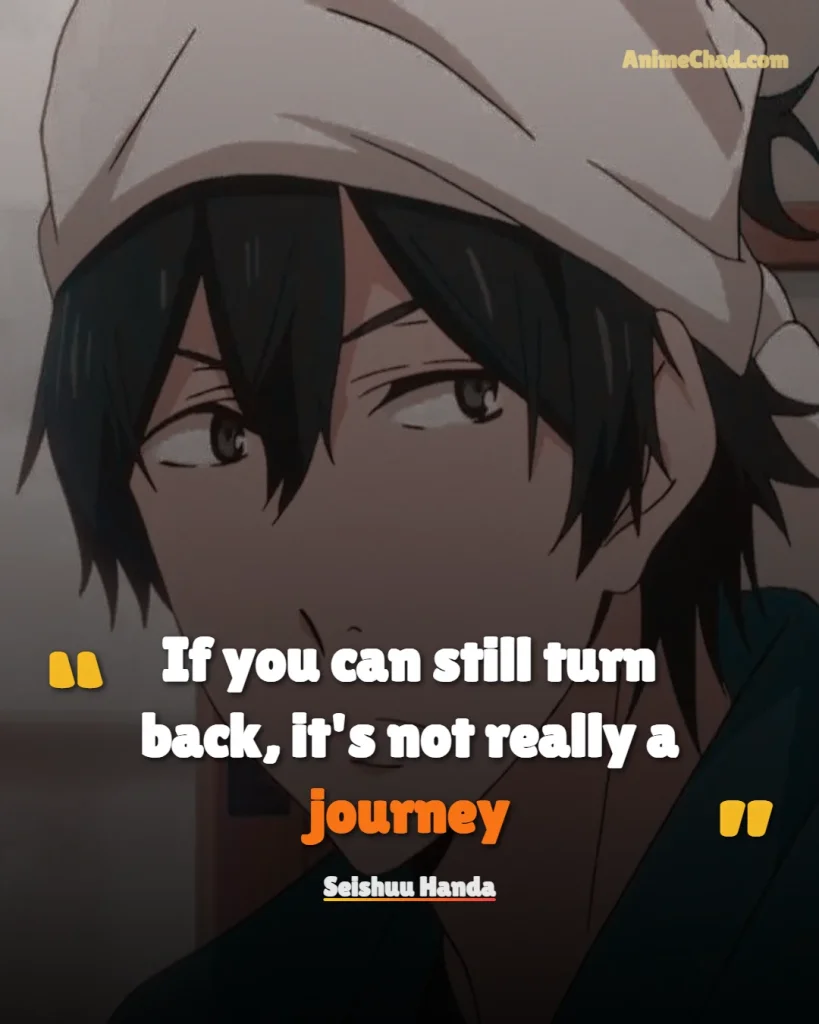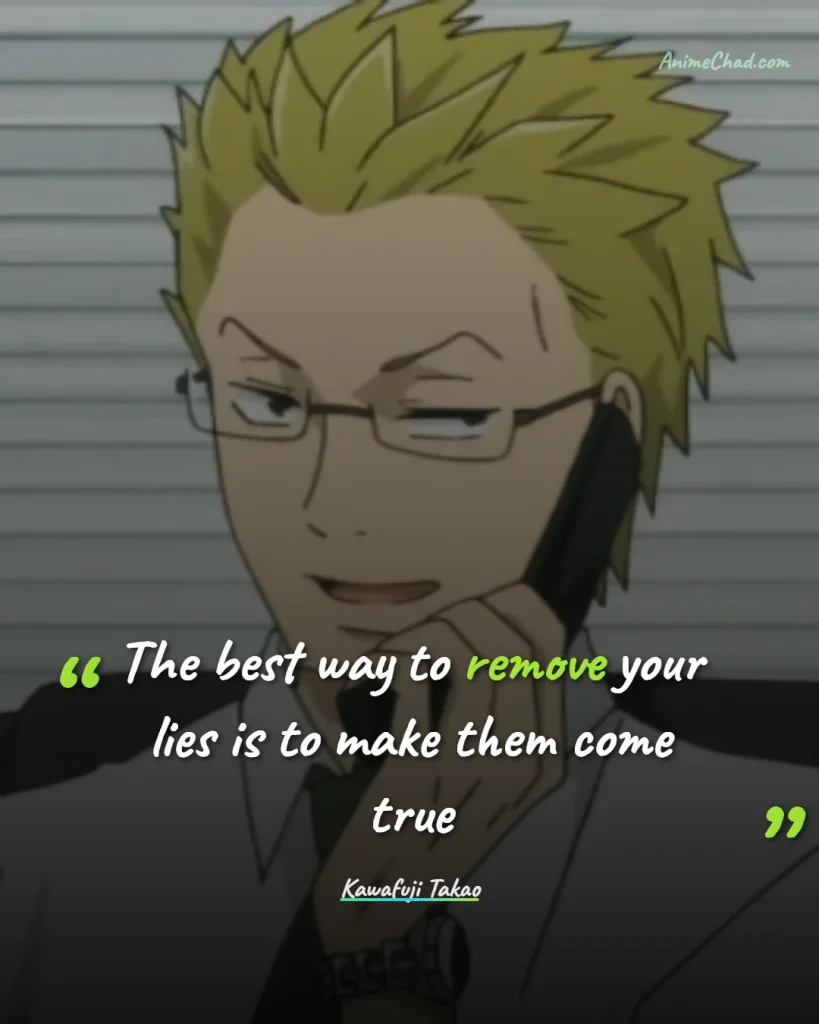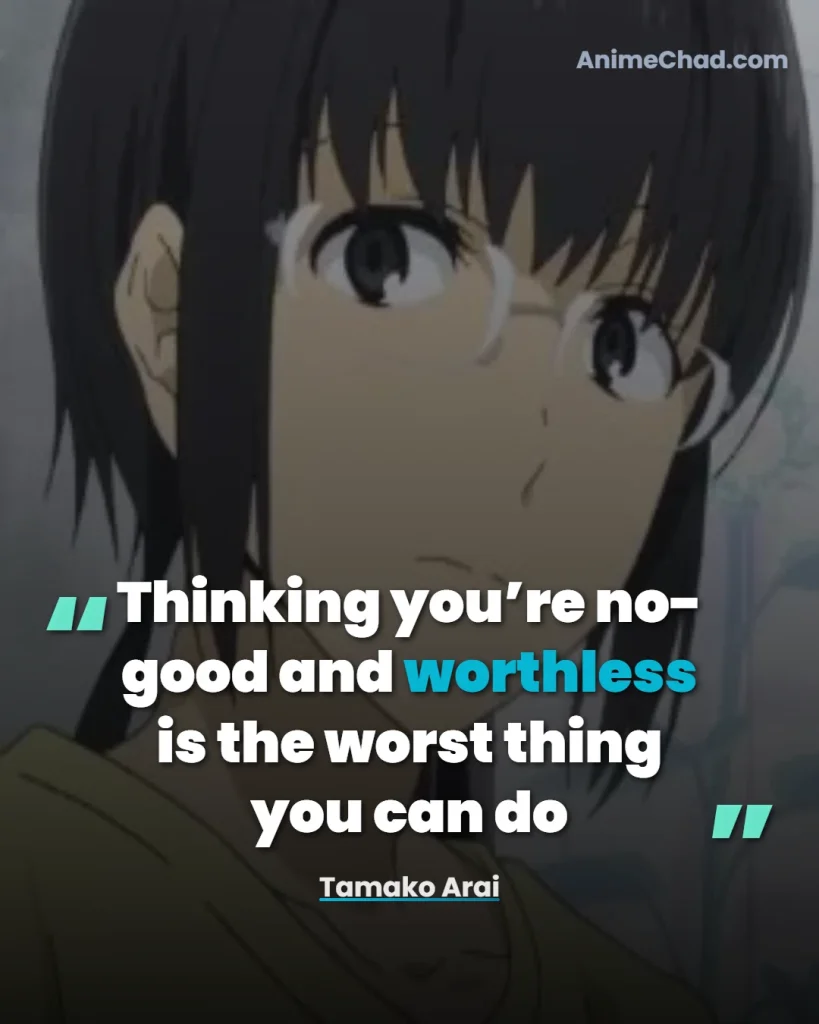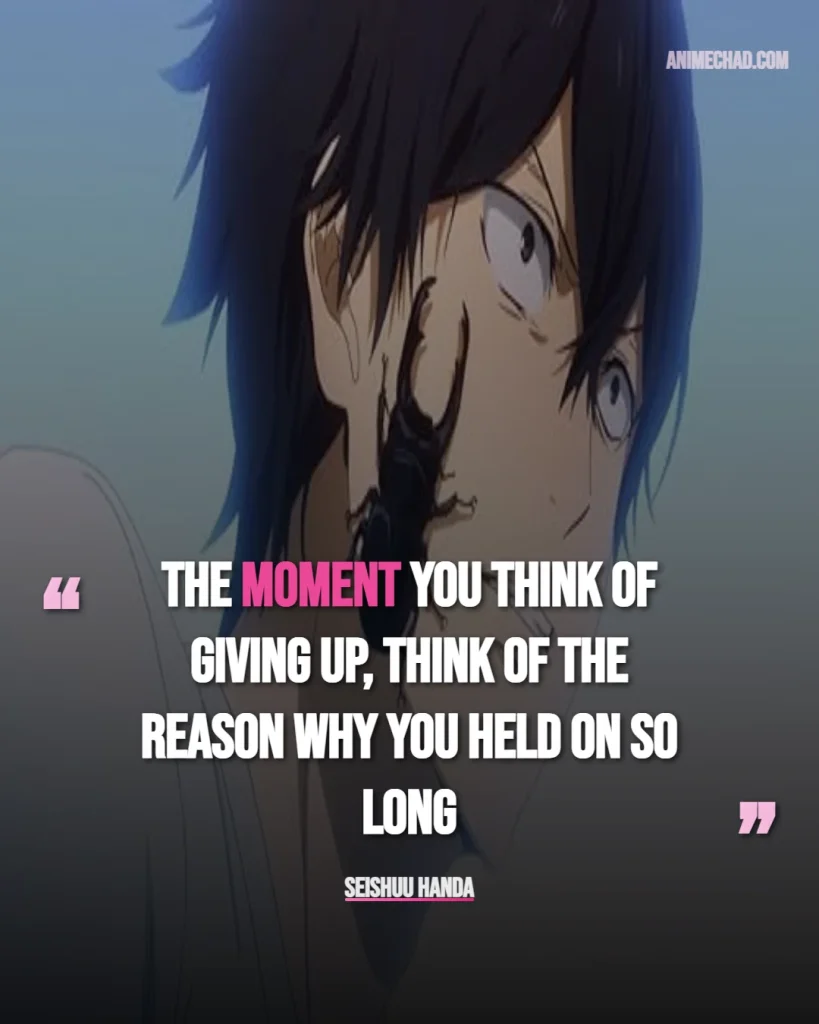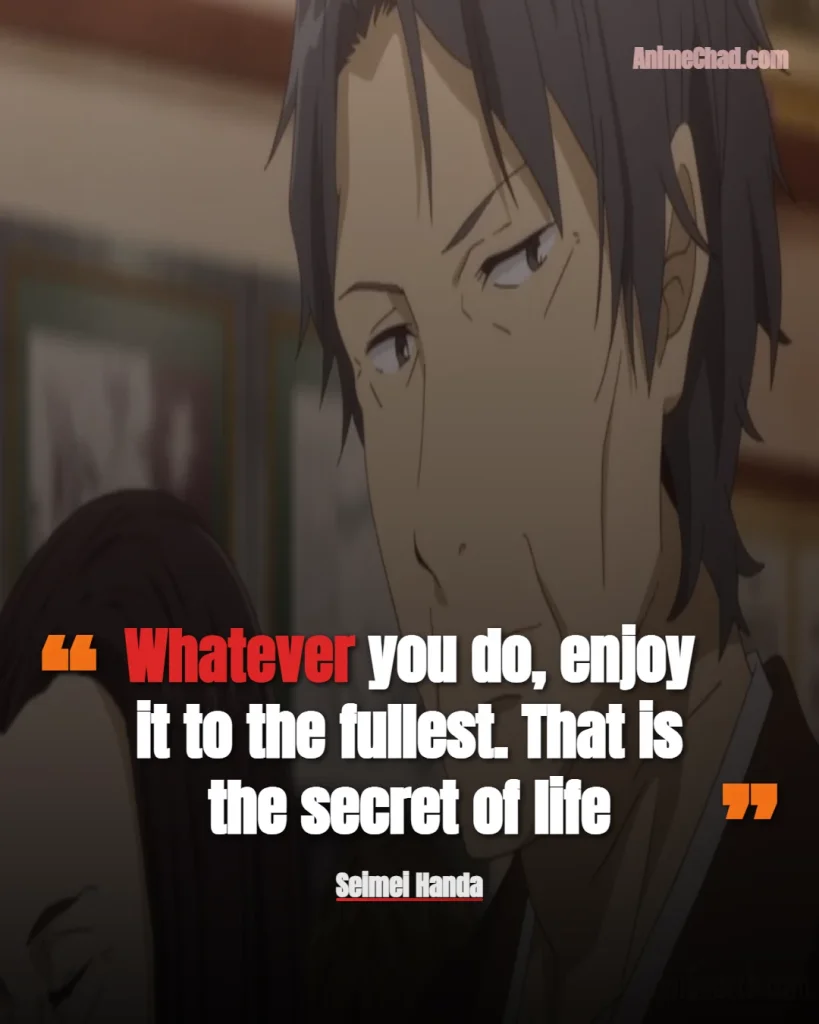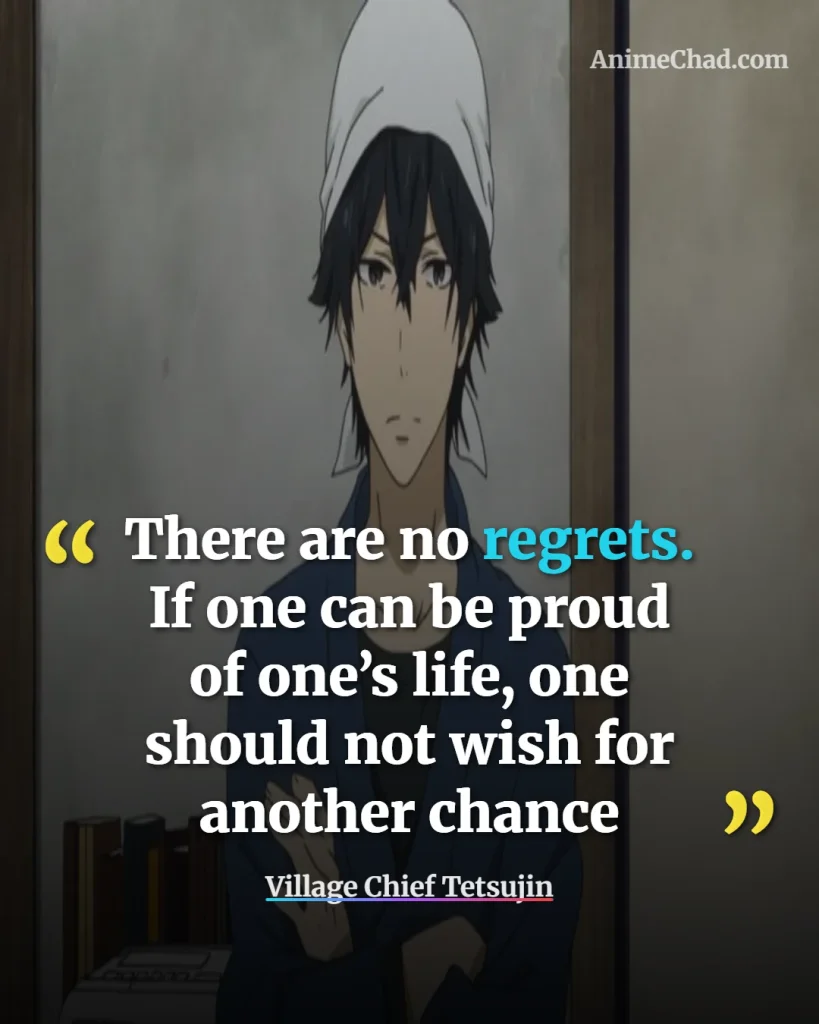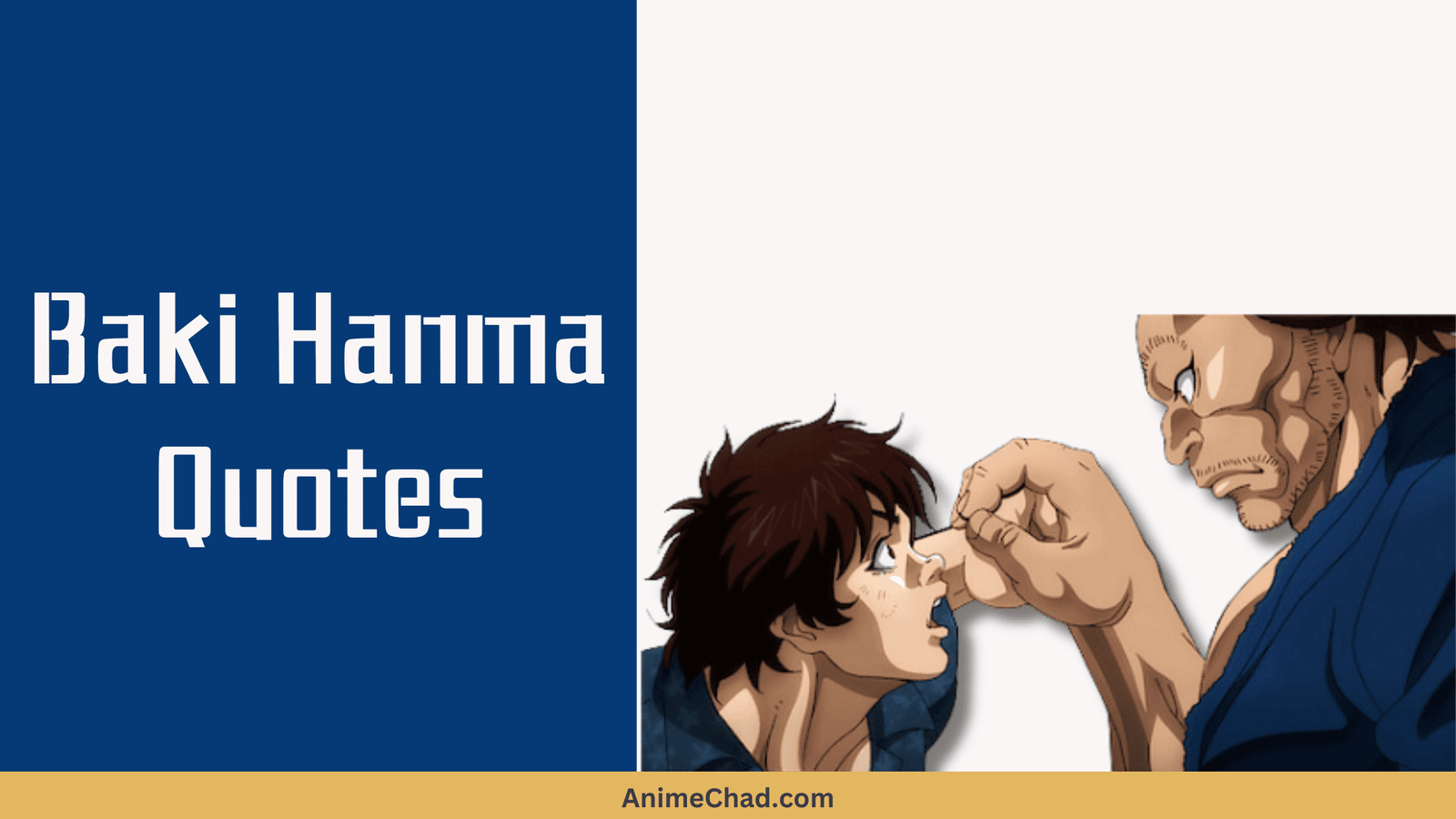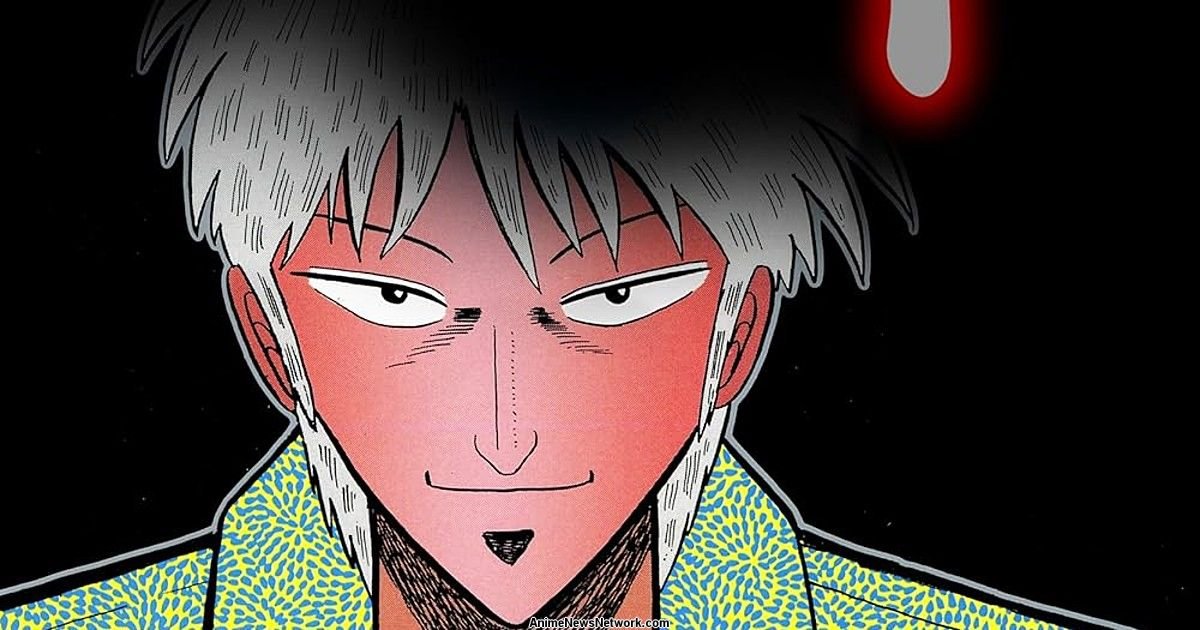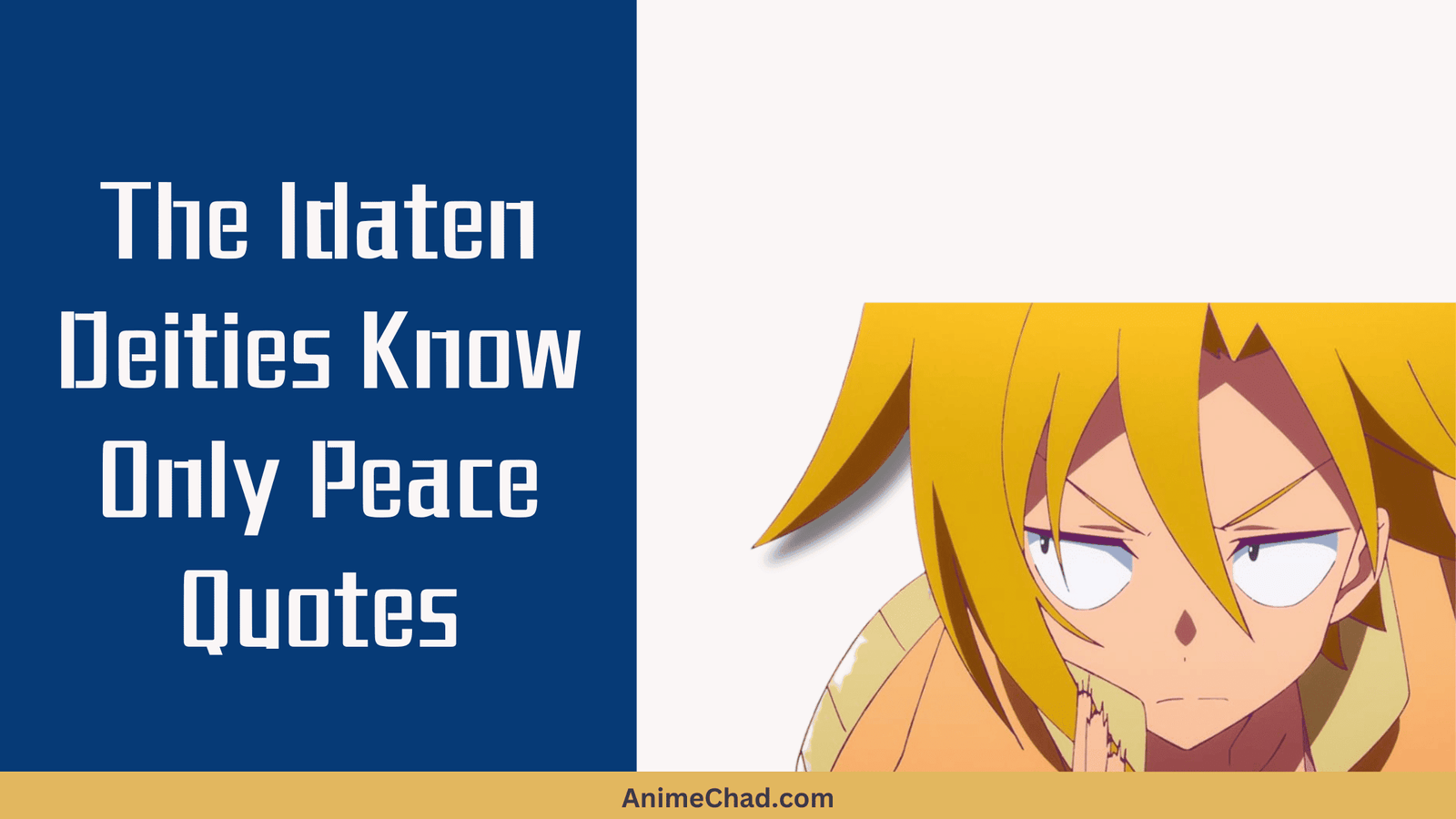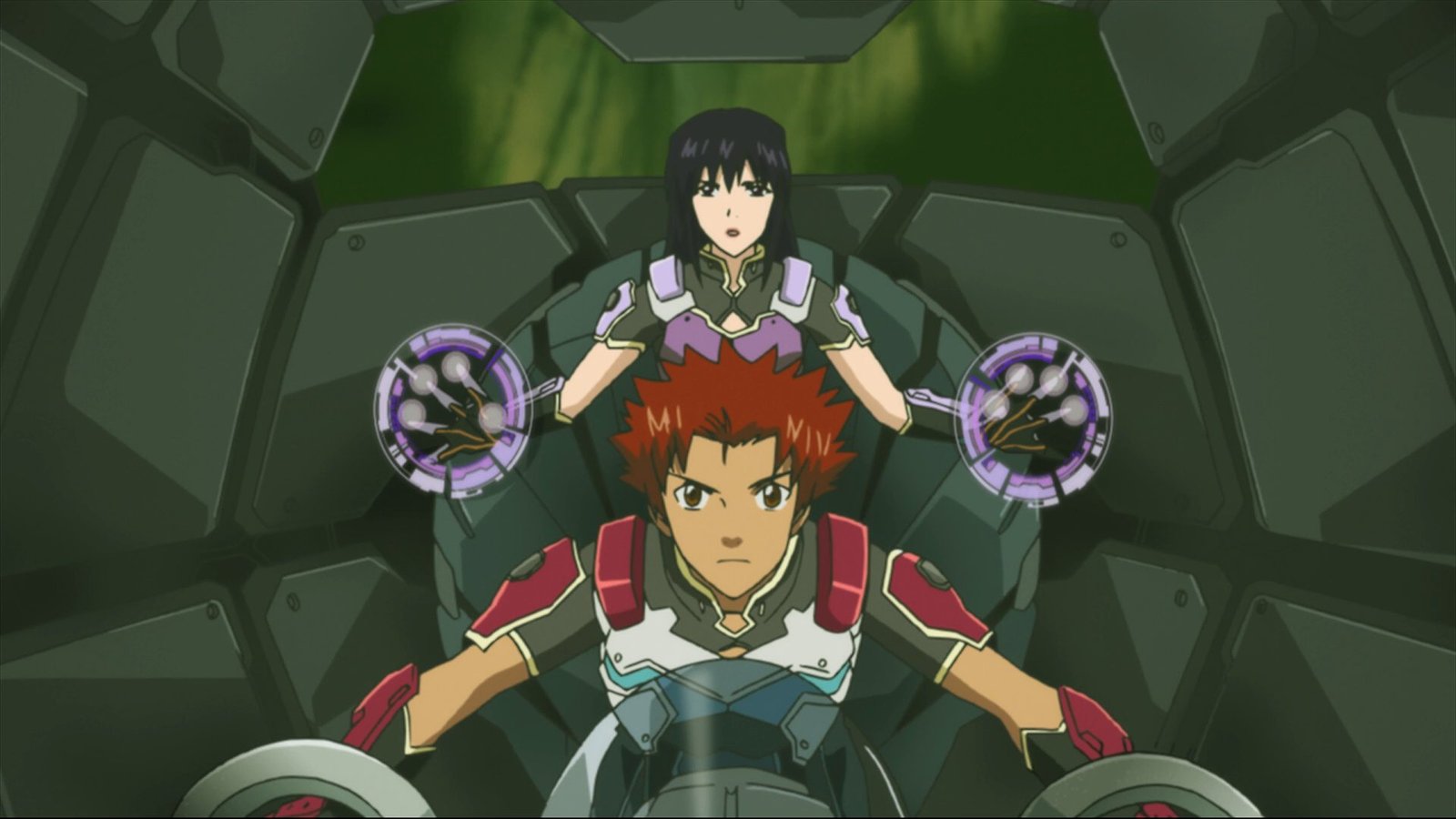Barakamon follows Seishuu Handa, a talented but hot-tempered young calligrapher exiled to a remote island after punching a critic, where he encounters quirky villagers who disrupt his solitary life. The series delves into themes of self-discovery, the balance between discipline and joy in creativity, and the value of human connections in fostering personal growth.
This curated collection highlights 25 canonical quotes that capture these elements, drawing from key arcs to showcase Handa’s evolution and the island’s transformative influence.
You ain’t gonna know unless you climb up yerself. Ain’t no way to look if you don’t try
Episode 2 (Turtle Shell)
Naru Kotoishi
Encourages Handa to embrace curiosity, sparking his first taste of uninhibited inspiration amid a peaceful sunset climb, highlighting the theme of risk for creative joy.
If we continue on the same path, we are likely to meet again
Episode 8 (Fireworks)
Seishuu Handa
Reflects Handa’s budding attachment to the islanders during a festival, emphasizing themes of destiny and connection, marking his shift from isolation to hopeful return.
Simplicity is the easiest path to true beauty
Episode 5 (The Teacher’s Burden)
Seishuu Handa
Handa realizes minimalism in calligraphy mirrors life’s uncomplicated joys, a pivotal development in his artistry, connecting to the series’ exploration of unpretentious growth.
The role of the young is to break new ground without fear of failure. Remain in memories, not record books! Lose the battle, win the war!
Episode 10 (One’s True Nature)
Kawafuji Takao
Urges Handa to prioritize personal impact over competitions, a tense moment of advice that reinforces perseverance and emotional resilience in his competitive arc.
Being able to work hard is the best talent of all
Episode 6 (The Fragrance of the Sea)
Hiroshi Kido
Hiroshi inspires Handa during a fishing outing, underscoring diligence as true genius, fostering Handa’s appreciation for communal effort in a serene, reflective scene.
If letting a child leave the nest will teach him how to fly, then surely it must be for the best
Chapter 15 (Parental Guidance)
Seimei Handa
Handa’s father reflects on independence during a family visit, evoking bittersweet growth, tying into themes of letting go for self-reliance in Handa’s maturation.
Go ahead and wait for me for a little while longer, I will catch up soon enough riding on the wind
Episode 11 (The Contest)
Seishuu Handa
Handa vows resilience before a calligraphy showdown, channeling island lessons into determination, a high-stakes moment blending pressure with optimistic development.
Once you carve your path all that’s left is to walk it
Chapter 22 (Crossroads)
Hiroshi Kido
Hiroshi advises Handa on pursuing dreams amid youthful doubts, promoting commitment, which deepens Handa’s theme of authentic self-expression over external validation.
Right now I’m in total darkness, but I’ll definitely find the light
Episode 1 (Pen Name)
Seishuu Handa
Handa confronts his creative block upon arriving, a raw admission of vulnerability, setting the stage for his arc of rediscovering passion through island interactions.
That’s why I can’t make a change. Everything I do is so… Half-assed
Episode 7 (The Lazy Artist)
Hiroshi Kido
Hiroshi confesses insecurities during a shared hobby session, mirroring Handa’s flaws, highlighting character parallels in striving for genuine improvement peacefully.
I’ve been getting so few requests lately guys keep ’em coming I beg youuuu
No, wait—canonical: The island changes you, whether you like it or not.
Episode 4 (The Girl in the Mountains)
Tamako Arai
Tamako notes Handa’s subtle transformation, a lighthearted yet profound observation, connecting to the series’ theme of involuntary growth through community bonds.
A dropout will beat a genius through hard work
Chapter 8 (Rivalry)
Seishuu Handa
Handa internalizes effort over innate talent after a rival encounter, a competitive tension that propels his development, emphasizing perseverance in artistic battles.
Everyone had to be drunk on something to keep moving on. Everyone… was a slave to something
Inspired, but canonical: I’m slave to my brush, but maybe that’s not all bad.
Episode 9 (The Weight of Talent)
Seishuu Handa
Handa acknowledges his obsession during a introspective night, balancing burden with acceptance, a quiet moment revealing emotional depth in his creative journey.
Simplicity ain’t just easy—it’s the heart of what lasts
Chapter 35 (Island Reflections)
Miwa Hamada
Miwa shares wisdom on enduring art during a group outing, influencing Handa’s style, tying into peaceful themes of lasting connections over fleeting achievements.
When you give up, that’s when the game ends
Episode 3 (The Girl from the Sea)
Hiroshi Kido
Hiroshi motivates Handa after a failed practice, a supportive exchange that builds resilience, showcasing development through friendship in an everyday challenge.
The ticket to the future is always open
Chapter 12 (Farewell Thoughts)
Kawafuji Takao
Kawafuji encourages Handa’s return to Tokyo, evoking hope amid departure anxiety, reinforcing the series’ motif of open paths for personal and artistic evolution.
Mistakes are not shackles that halt one from stepping forward
Episode 12 (Thus, The Teacher)
Seishuu Handa
Handa forgives his past outburst in a farewell reflection, a climactic release of guilt, connecting to broader redemption and growth after island trials.
Don’t live your life making up excuses
Chapter 20 (Youthful Struggles)
Naru Kotoishi
Naru playfully scolds Handa’s procrastination, injecting childlike honesty, which lightens a moment of self-doubt and advances his theme of embracing imperfection.
Hard work betrays none, but dreams betray many
Episode 6 (The Fragrance of the Sea)
Hiroshi Kido
During a communal task, Hiroshi warns of unfulfilled aspirations, resonating with Handa’s fears, deepening their bond and the narrative’s focus on diligent pursuit.
If you can still turn back, it’s not really a journey
Chapter 28 (The Long Road)
Seishuu Handa
Handa muses on commitment during a solo hike, a peaceful epiphany marking irreversible change, highlighting themes of irreversible self-discovery.
The best way to remove your lies is to make them come true
Episode 10 (One’s True Nature)
Kawafuji Takao
Kawafuji challenges Handa’s self-deceptions before a deadline, tense counsel that catalyzes honesty, linking to the arc’s emphasis on authentic artistic integrity.
Thinking you’re no-good and worthless is the worst thing you can do
Chapter 5 (Doubts)
Tamako Arai
Tamako comforts Handa after a poor piece, a warm intervention that counters his insecurity, fostering emotional growth through village empathy.
The moment you think of giving up, think of the reason why you held on so long
Episode 11 (The Contest)
Seishuu Handa
Handa steels himself recalling island joys mid-competition, a high-pressure pivot that embodies perseverance, tying back to relational motivations.
Whatever you do, enjoy it to the fullest. That is the secret of life
Chapter 40 (Final Brushstrokes)
Seimei Handa
Handa’s father imparts life advice in a closing family scene, profound and serene, encapsulating the series’ core of finding delight in creation and bonds.
There are no regrets. If one can be proud of one’s life, one should not wish for another chance
Episode 12 (Thus, The Teacher)
Village Chief Tetsujin
The chief consoles Handa on leaving, a wise farewell laden with nostalgia, affirming themes of pride in growth without the weight of what-ifs.


